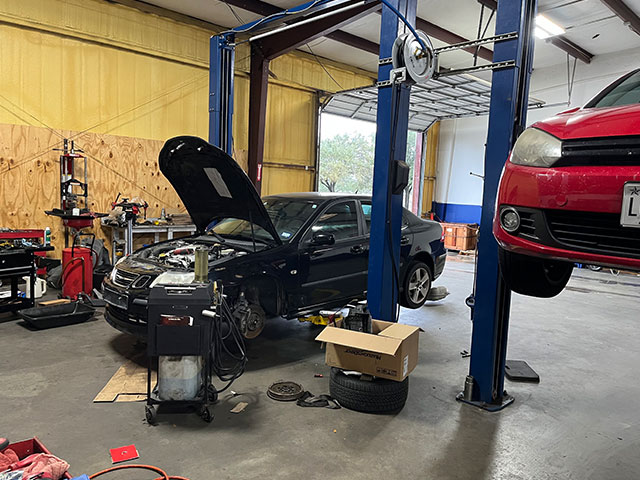When it comes to vehicle maintenance, one often overlooked aspect is tire care. Your tires play a crucial role in ensuring your safety on the road, as well as the overall performance and efficiency of your vehicle. Neglecting tire maintenance and rotation can lead to a range of issues, from reduced fuel efficiency to increased safety risks. In this article, we will delve into the importance of regular tire maintenance and rotation, highlighting the key benefits and steps to ensure your tires are in optimal condition.
Why Tire Maintenance Matters
1. Safety First
Safety should always be the top priority when it comes to driving. Your tires are the only point of contact between your vehicle and the road, making them a critical component for road safety. Properly maintained tires provide better traction, reducing the risk of accidents, especially in adverse weather conditions like rain or snow.
2. Improved Fuel Efficiency
Tire maintenance directly impacts your vehicle’s fuel efficiency. Underinflated or misaligned tires can increase rolling resistance, forcing your engine to work harder and consume more fuel. By regularly checking and maintaining your tire pressure, you can save money on fuel costs and reduce your carbon footprint.
3. Extended Tire Lifespan
Tires are a significant investment, and replacing them prematurely can be costly. Regular maintenance and rotation help ensure even wear and tear on your tires. This extends their lifespan, allowing you to get the most out of your investment. It also reduces the frequency of tire replacements, which is better for the environment.
4. Enhanced Handling and Performance
Properly maintained tires contribute to better handling and overall vehicle performance. When your tires are in good condition, your vehicle responds more predictably to your steering inputs, ensuring a smoother and safer ride. Whether you’re navigating winding roads or simply driving through city traffic, well-maintained tires make a difference.

The Importance of Tire Rotation
Tire rotation is a specific aspect of tire maintenance that often gets overlooked. It involves periodically moving the tires from one position to another on your vehicle. This practice is essential for several reasons:
1. Even Tire Wear
Different tires on your vehicle can wear unevenly due to variations in weight distribution and driving conditions. Front tires typically wear more quickly than rear tires in front-wheel-drive vehicles, while the opposite is true for rear-wheel-drive vehicles. Rotating your tires ensures that they wear evenly, prolonging their life and saving you money.
2. Improved Handling
Unevenly worn tires can lead to handling issues and reduced traction. By rotating your tires, you maintain a consistent level of grip on the road, which is essential for safe and predictable handling.
3. Balanced Performance
Tire rotation helps maintain balanced performance across all four wheels. This is particularly important for all-wheel-drive (AWD) and four-wheel-drive (4WD) vehicles, as any disparities in tire wear can affect their performance and stability.
How to Maintain and Rotate Your Tires
Now that we understand the importance of tire maintenance and rotation, let’s explore some practical steps to ensure your tires remain in top condition:
1. Regularly Check Tire Pressure
Invest in a good-quality tire pressure gauge and check your tire pressure at least once a month. Keep the pressure at the levels recommended by your vehicle manufacturer, which you can find in the owner’s manual or on a sticker inside the driver’s side door jamb.
2. Inspect Tread Depth
Tread depth is crucial for tire performance. Use the “penny test” to check the tread depth. Insert a penny into the tread groove with Lincoln’s head facing down. If you can see the top of Lincoln’s head, it’s time to replace your tires.
3. Schedule Regular Tire Rotations
Follow your vehicle manufacturer’s recommended tire rotation schedule. Typically, tire rotations are recommended every 6,000 to 8,000 miles, but this may vary based on your specific vehicle and driving habits.
4. Align Your Wheels
Misaligned wheels can cause uneven tire wear. If you notice your vehicle pulling to one side or your steering wheel is off-center, have your wheels aligned by a professional mechanic.
5. Balance Your Tires
Balancing your tires ensures that weight is distributed evenly, preventing vibrations and uneven wear. Tire balancing should be done when you get new tires and whenever you have them rotated.
Conclusion
Regular tire maintenance and rotation are essential for your safety, the longevity of your tires, and the overall performance of your vehicle. By following these simple steps and staying proactive in caring for your tires, you can enjoy a smoother and safer driving experience while saving money in the long run.
Don’t overlook the importance of tire care. Your tires are the foundation of your vehicle’s performance, and a little maintenance goes a long way in ensuring they serve you well. If you want to find great tips and information about car maintenance, check out this website here to learn more.

